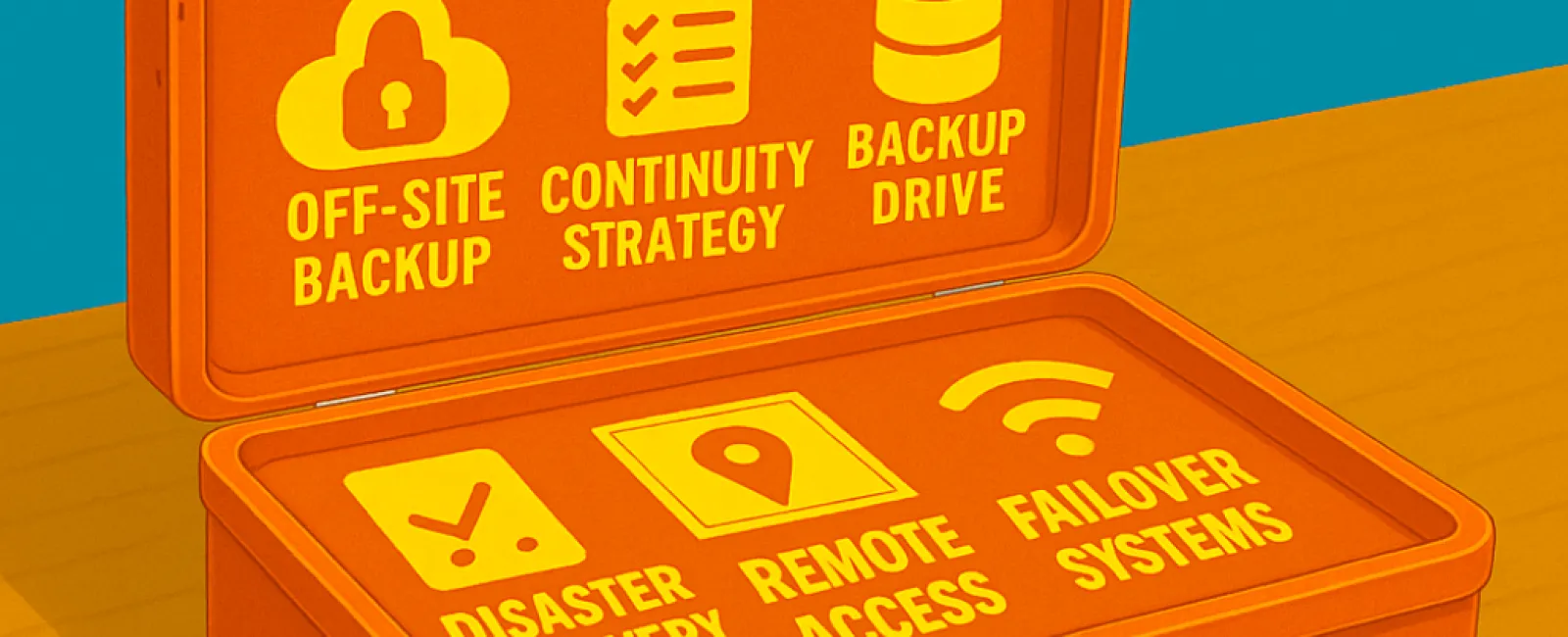July 28, 2025
Unexpected power failures, cyber threats, hardware malfunctions, and natural calamities often strike without notice, posing serious risks to small businesses. While many believe that simply having backups is sufficient, the reality is that recovering a file does not equate to maintaining business operations. Without access to critical systems, support for remote work, and effective communication with your team and clients, even brief interruptions can escalate into prolonged setbacks. Partnering with a dependable IT provider means preparing not just with backups, but with a comprehensive strategy to ensure your business stays operational no matter the challenge.
Backups Alone Won't Cut It — You Need a Robust Continuity Plan
Backups are undeniably important, but they represent only one piece of a much larger puzzle. What truly safeguards your business is a business continuity plan — a forward-thinking approach designed to keep your operations running smoothly during and after any disruption.
When systems fail, files become unreachable, or your physical office is compromised, relying solely on local backup files offers limited relief. Without a well-defined plan to rapidly restore operations, your business faces significant risks including financial losses, damage to reputation, and regulatory non-compliance.
Understanding the Critical Difference: Backups vs. Business Continuity
Many businesses make the mistake of confusing these two concepts:
● Backups enable data restoration.
● Continuity ensures your business keeps running seamlessly, regardless of the situation.
An effective continuity plan addresses vital questions such as:
● What is our recovery time objective?
● Where will our team operate if the office is inaccessible?
● Which systems are absolutely critical to our mission?
● Who is accountable for initiating the recovery process?
Key elements of a strong plan include:
● Encrypted, off-site, and immutable backups
● Clearly defined recovery timelines (RTO and RPO)
● Preparedness for remote work scenarios
● Redundant infrastructure and failover systems
● Regular disaster recovery drills and testing
If your IT provider can't confidently guide you through these critical aspects, you aren't fully protected — you're just fortunate so far.
Could This Happen to Your Business? Absolutely.
This isn't mere speculation designed to alarm you; these are real incidents with tangible impacts. In recent years:
● Florida hurricanes forced hundreds of businesses to shut down, especially those lacking cloud-based access
● North Carolina floods wiped out on-site servers, erasing months of critical data.
● California wildfires destroyed entire office buildings without adequate off-site recovery plans.
● Numerous small businesses struck by ransomware attacks discovered their backups were either corrupted or never properly tested.
Disasters don't discriminate by company size — businesses like yours face these risks daily.
Essential Questions You Should Be Asking Today
If disaster strikes tomorrow, will your business keep running?
Here's what to ask your IT provider:
● In the event of ransomware, how quickly can we restore operations?
● Are backups regularly tested, and which systems are covered?
● What's the contingency plan if fire or flooding makes our office unusable?
● Is our continuity plan fully compliant with industry regulations?
● Can we maintain client services if our team must operate remotely?
If you don't have absolute confidence in these answers, your business may already be vulnerable.
Disasters Are Inevitable, But Downtime Is Optional.
While you can't prevent every outage, storm, or cyberattack, you can control how your business responds.
A competent IT provider helps you recover.
An exceptional one ensures your business never misses a beat.
Ready to assess your business's readiness?
Click Here or call us at (210) 582-5814 to schedule your FREE Discovery Call, and let's guarantee that disasters never translate into downtime.




